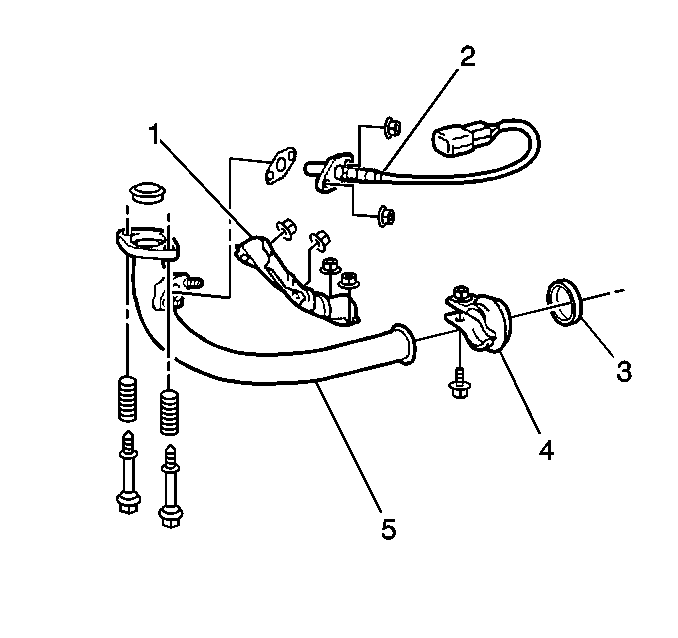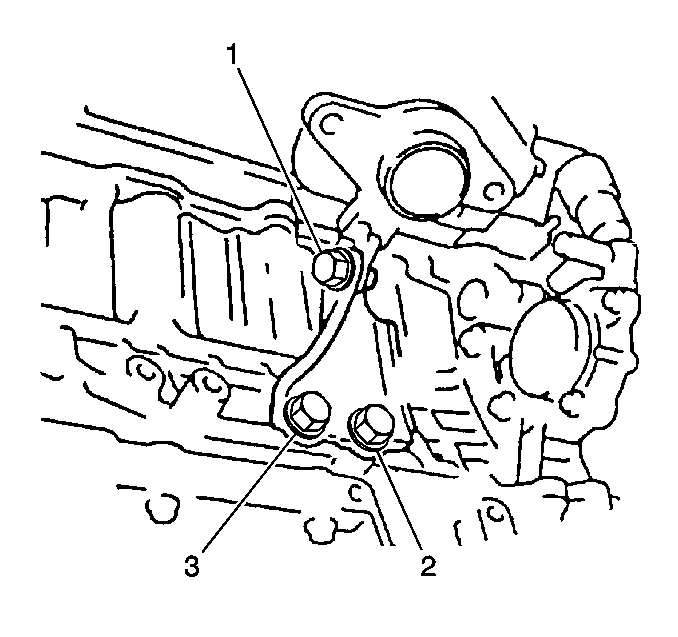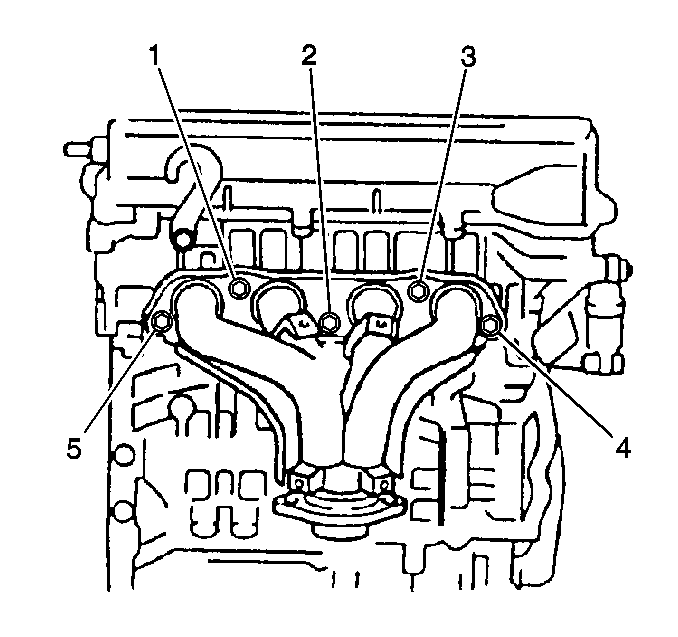Removal Procedure
Caution: In order to avoid being burned, do not service the exhaust system while
it is still hot. Service the system when it is cool.
Caution: Unless directed otherwise, the ignition and start switch must be in the OFF or LOCK position, and all electrical loads must be OFF before servicing
any electrical component. Disconnect the negative battery cable to prevent an electrical spark should a tool or equipment come in contact with an exposed electrical terminal. Failure to follow these precautions may result in personal injury and/or damage to
the vehicle or its components.
- Disconnect the negative battery cable.

- Disconnect the Heated
Oxygen Sensor (HO2S1) electrical connector.
- Remove the following components from the exhaust pipe:
| • | The oxygen sensor gasket |
- Raise and properly support the vehicle. Refer to
Lifting and Jacking the Vehicle
in General Information.
- Remove the following components from the exhaust manifold flange:
- Remove the exhaust gasket.

- Remove 1 bolt (1) from
the manifold support bracket to exhaust manifold.
- Lower the vehicle.

- Remove the 6 upper heat
insulator bolts.
- Remove the heat insulator.
- Remove the 5 exhaust manifold nuts (1).
- Remove the following components:
- Remove the 3 lower heat insulator bolts.
- Remove the lower heat insulator.
Installation Procedure

Notice: Use the correct fastener in the correct location. Replacement fasteners
must be the correct part number for that application. Fasteners requiring
replacement or fasteners requiring the use of thread locking compound or sealant
are identified in the service procedure. Do not use paints, lubricants, or
corrosion inhibitors on fasteners or fastener joint surfaces unless specified.
These coatings affect fastener torque and joint clamping force and may damage
the fastener. Use the correct tightening sequence and specifications when
installing fasteners in order to avoid damage to parts and systems.
- Install the lower heat insulator to the exhaust manifold. Secure the
insulator using 3 bolts.
Tighten
Tighten the lower heat insulator bolts to 15 N·m (11 lb ft).
- Install the following components:
| • | The new exhaust manifold gasket |
- Secure the manifold using 5 exhaust manifold nuts (1).
Tighten
Tighten the exhaust manifold nuts to 48 N·m (36 lb ft).

- Install the upper heat
insulator. Secure the insulator using 6 bolts.
Tighten
Tighten the upper heat insulator bolts to 15 N·m (11 lb ft).
- Raise and properly support the vehicle. Refer to
Lifting and Jacking the Vehicle
in General Information.
- Install 1 bolt (1) to the exhaust manifold support bracket.
Tighten
Tighten the exhaust manifold bracket bolt to 32 N·m (24 lb ft).
- Install the front exhaust pipe to the manifold flange.
Use the following components in order to secure the front exhaust pipe.
Tighten
Tighten the front exhaust pipe bolts to 62 N·m (46 lb ft).
- Install the following components to the front exhaust pipe:
| • | The new oxygen sensor gasket |
- Secure the heated oxygen sensor using 2 nuts.
Tighten
Tighten the heated oxygen sensor nuts to 41 N·m (30 lb ft).
- Connect the (HO2S1) electrical connector.
- Connect the negative battery cable.
Tighten
Tighten the battery cable bolt to 15 N·m (11 lb ft).





